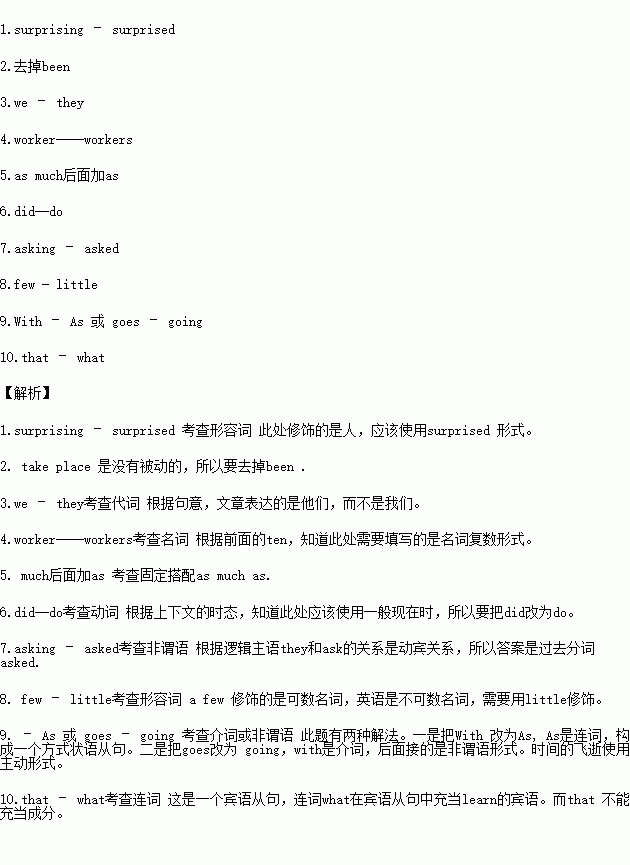A generation of parents raised according to the permissive principles of postwar childcare experts is rediscovering the importance of saying "No" to their children.They are beginning to reclaim the house as their own.Even spanking(打屁股)is back.
While today's parents do not want to return to the Victorian era (时代)—when children were seen, spanked, but not heard—there is a growing acknowledgement that the laissez-faire approach produced a generation of children running rings around puzzled parents struggling to restore order.
Janthea Brigden, a trainer with Parent Network, says: " The problem is that parents don't want all that controlling things.What they want is to be able to discipline (管教) their children through teaching and encouraging."
According to Steve Biddulph, the author of More Secrets of Happy Children, the permissive era was often just an excuse to ignore children.He believes discipline involves firm but friendly teaching and does not need to involve punishment.He teaches a method called "stand and think" , where a child is helped to figure out what is wrong and how to get it right.Mr.Biddulph understands parents using spanking, but lie is against it."The happiest children are those who know Mum and Dad are in charge.As children grow into their teens, more negotiation can take place, such as: Prove you can be home safely by 1l pm, and we might let you stay out till midnight."
" There is no good evidence that an occasional, properly administered spanking is harmful in any way." says John Rosemond, an American who has won a huge following by calling for "parent power".It is pure nonsense to believe that restricting children to their room as a punishment could make them have negative feelings about the room and cause sleep problems.
Mr.Rosemond tracks the overturning of traditional family values to the end of the Second World War.He blames the change of the American family into a child-centered, self-respect-oriented (以…为导向) unit on psychologists and social workers, who for 30 years have weakened traditional approaches.Previous generations of American parents raised children not by the book, but by self-evident truth, he says.Children should be seen and hot heard.If you make your bed, you'll have to lie in it.He says that those phrases contain time-honored understanding and principles that helped children to develop what we refer to as the "three Rs" of parenting: respect, responsibility and resourcefulness.
1.Which is closest to the meaning of the underlined word "laissez-faire" in the second paragraph?
A.Let it be. B.Go for it.
C.Get it right. D.Take it easy.
2.If his child did something wrong, Steve Biddulph would ______.
A.give him a good beating
B.lock him up in a dark room
C.ask him to stand in a corner for hours
D.help him find out the problem and solution
3.By mentioning the underlined part in the last paragraph, Mr.Rosemond .
A.blames parents for ignoring children's rights
B.reminds parents to communicate more with children
C.encourages parents to involve children more in family affairs
D.explains how previous generations of parents raised children
4.What does the passage mainly talk about?
A.The causes of discipline problems.
B.The best way to discipline children.
C.Different opinions on ways of parenting.
D.Differences between parents of different times
 黄冈天天练口算题卡系列答案
黄冈天天练口算题卡系列答案
